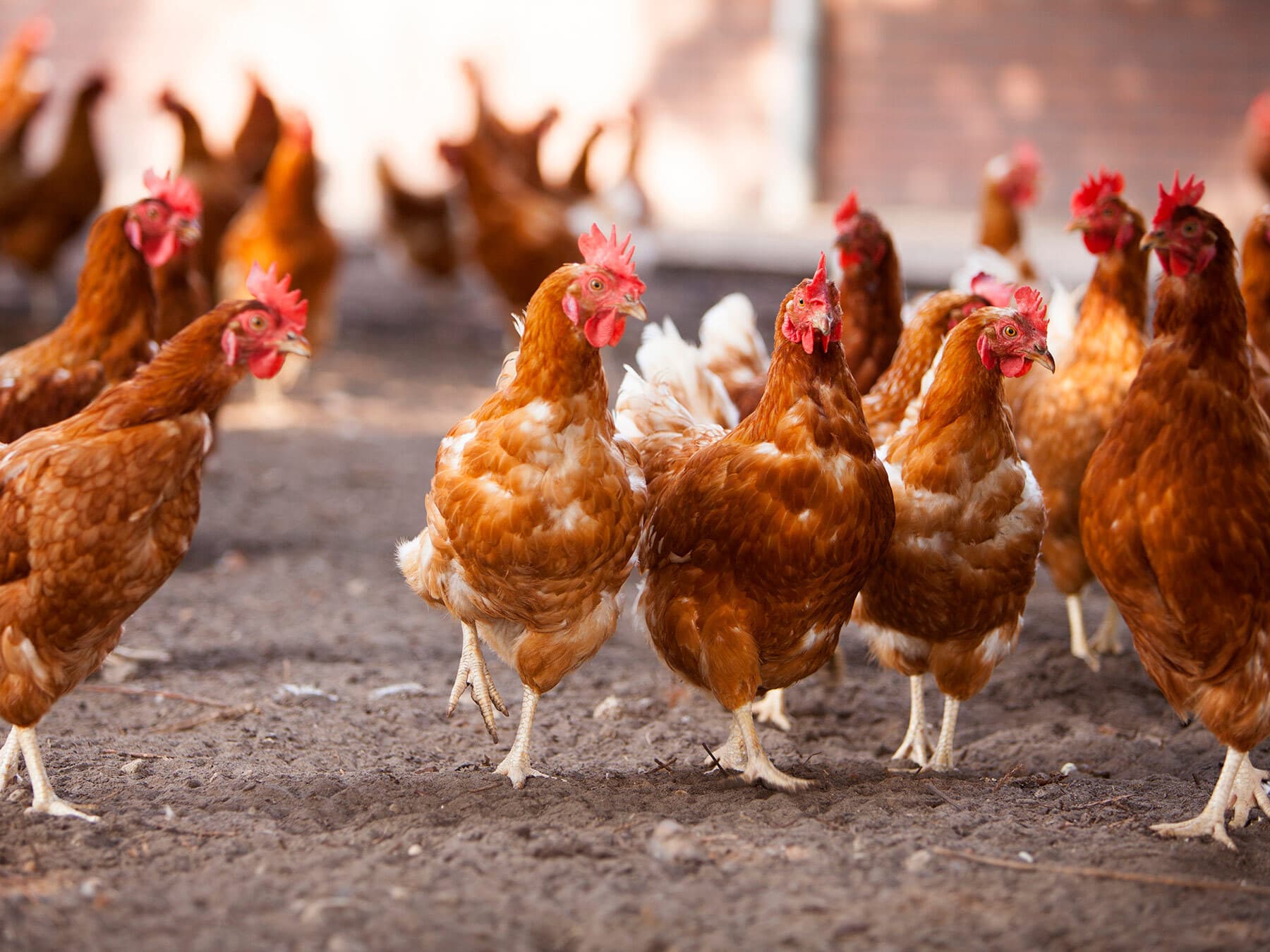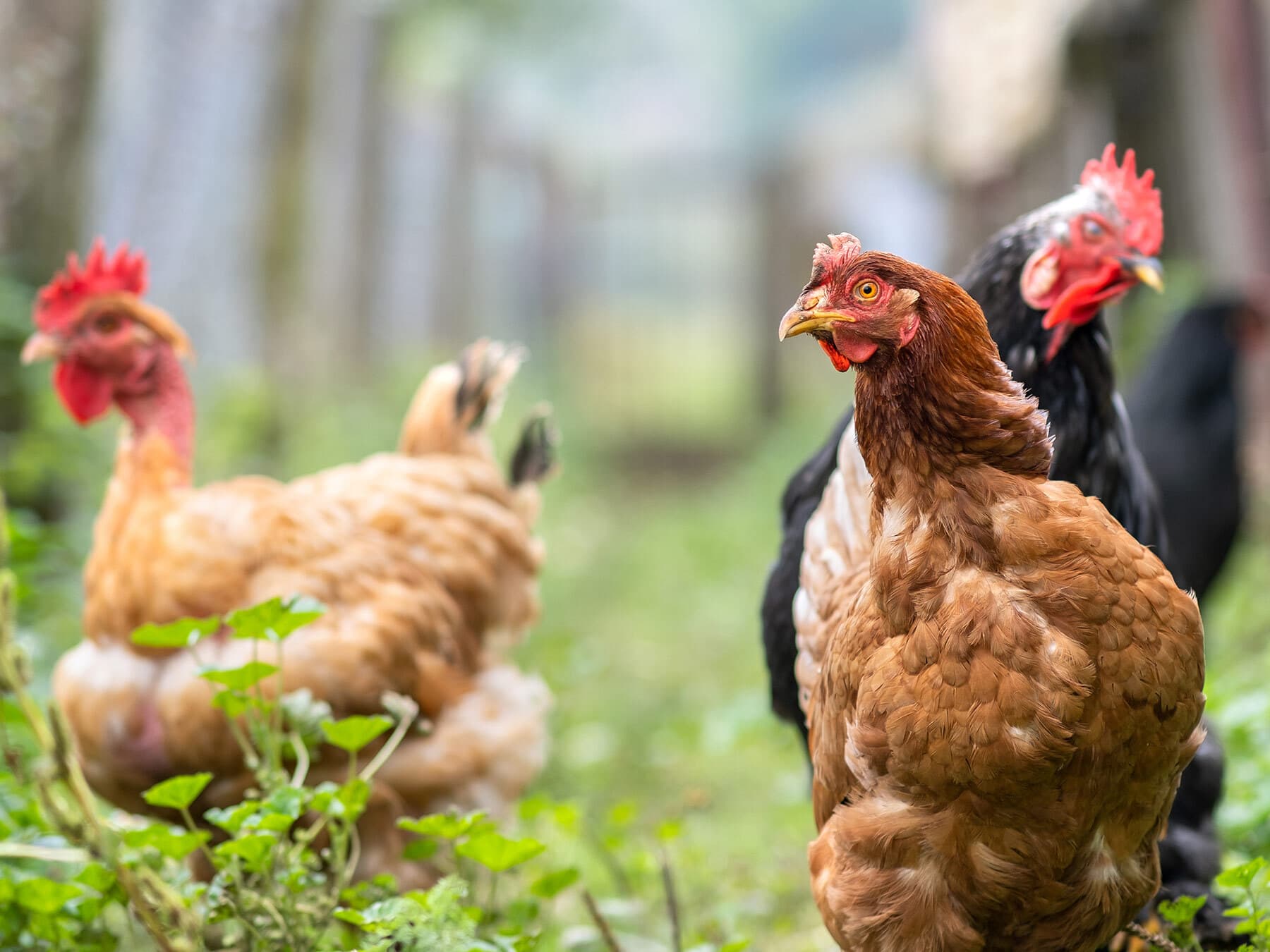
From the Journal
The Daily Feast: What Chickens Really Eat
From insects and seeds to kitchen scraps and commercial feed, chickens are surprisingly selective eaters despite their reputation as living garbage disposals.
These clever foragers consume about a quarter-pound of food daily, using their powerful feet to scratch through the soil and their sharp eyes to spot the tiniest morsels - all while following a strict pecking order that determines who eats first and best.
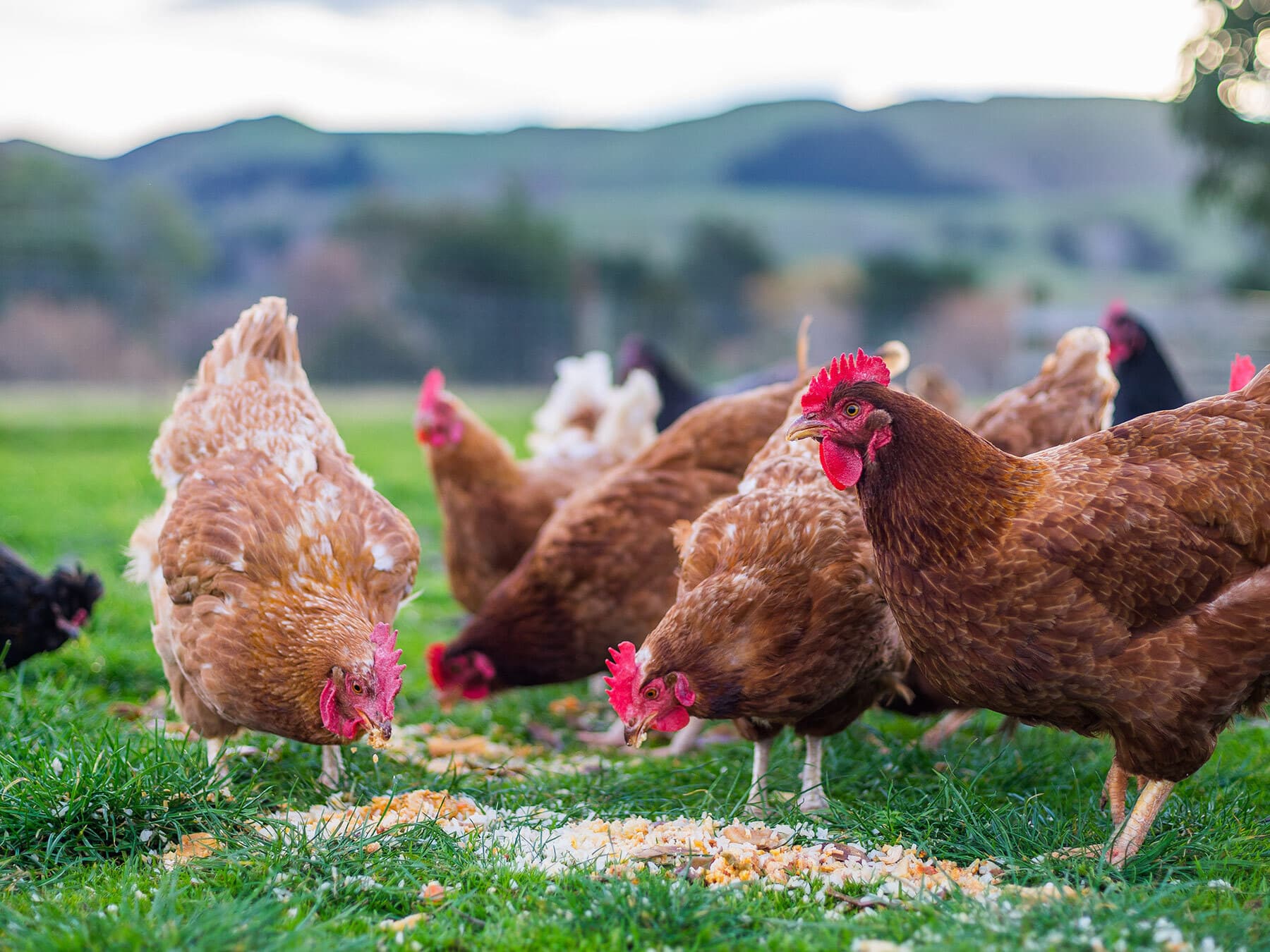
Natural Foraging Behaviours
Give them free range of a yard, and they'll show you exactly what chickens are meant to eat.
They scratch the ground with their powerful feet, creating little divots in the soil. Then, with quick, jerky head movements, they pause to inspect their work. They're looking for everything from seeds and insects to tender grass shoots.
Commercial farmers know this natural behaviour well, which is why quality chicken feed contains a carefully balanced mix of grains, proteins, and minerals that mirrors their wild diet.
Got a photo of a bird you can't identify?
Upload a photo and find out what it is in seconds — no account needed
Identify a Bird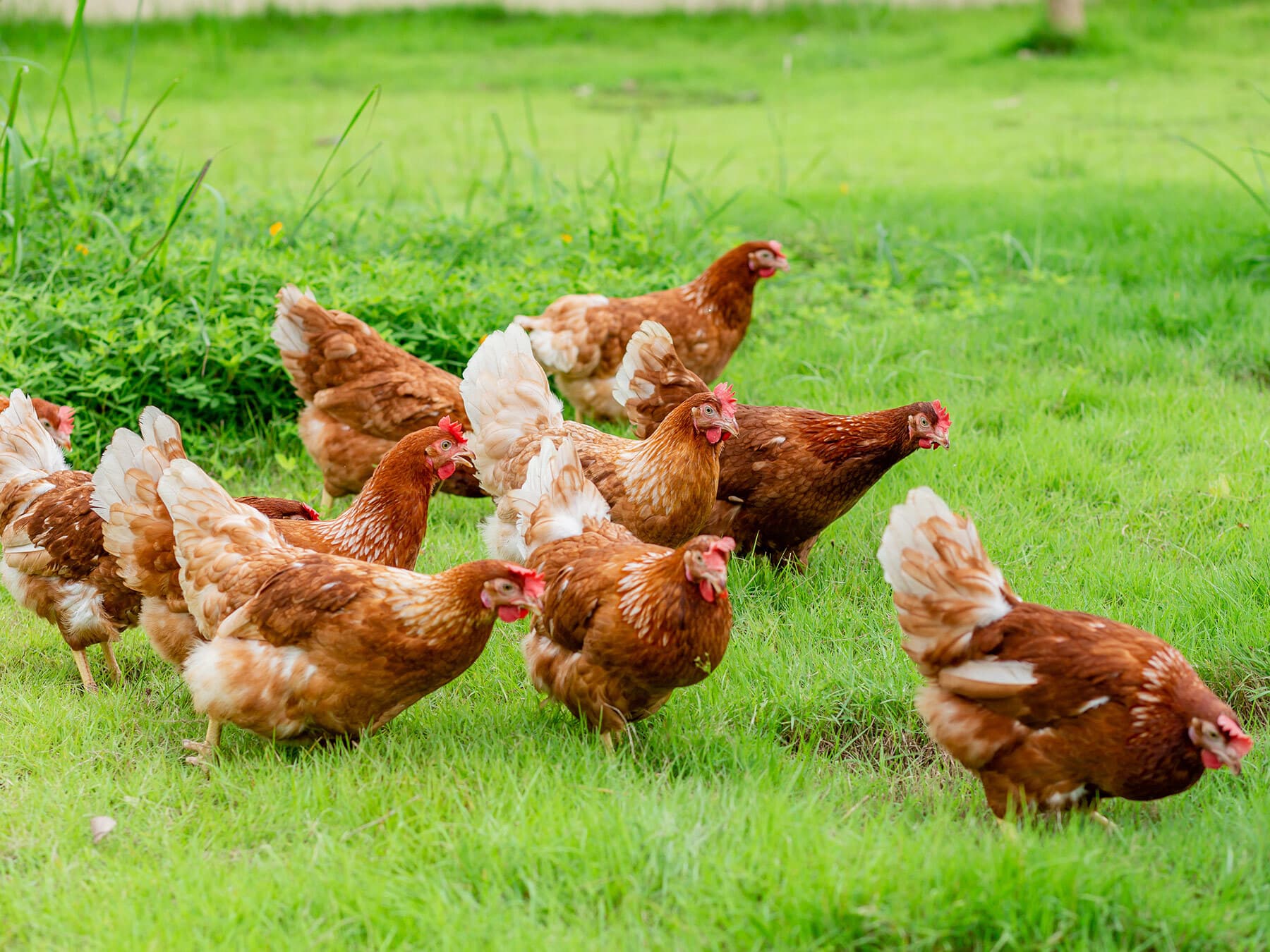
Surprising Food Preferences
Some of their eating habits might surprise you. Those calcium-rich eggshells other birds wouldn't touch? Laying hens will eagerly peck them up - they need that extra calcium for healthy egg production.
They'll spend hours scratching through old leaves, finding tiny insects most people wouldn't even notice. You can actually track where they've been by following the scattered leaf trails they leave behind.
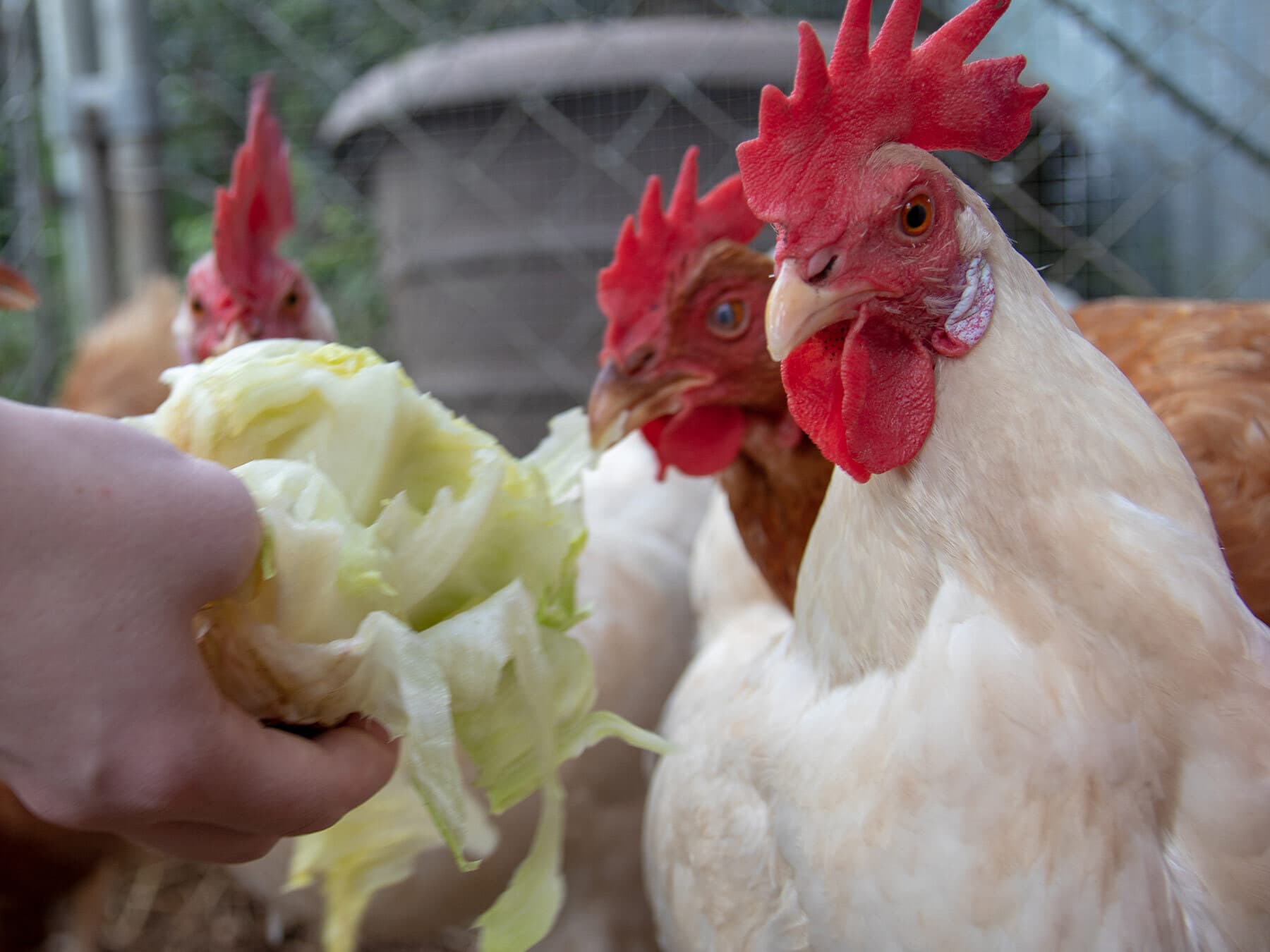
Seasonal Feeding Patterns
Come summer, they turn into proper bug-hunting machines. They'll station themselves near flowering plants, waiting to snap up any insect that ventures too close.
By autumn, they're experts at finding fallen fruit, though they show clear preferences - watching them pick through windfall apples, selecting just the sweetest bits, you'd think they were food critics.
What Not to Feed Your Chickens
Please remember to avoid giving them apple seeds or avocado pits, as these common foods can be toxic to chickens.
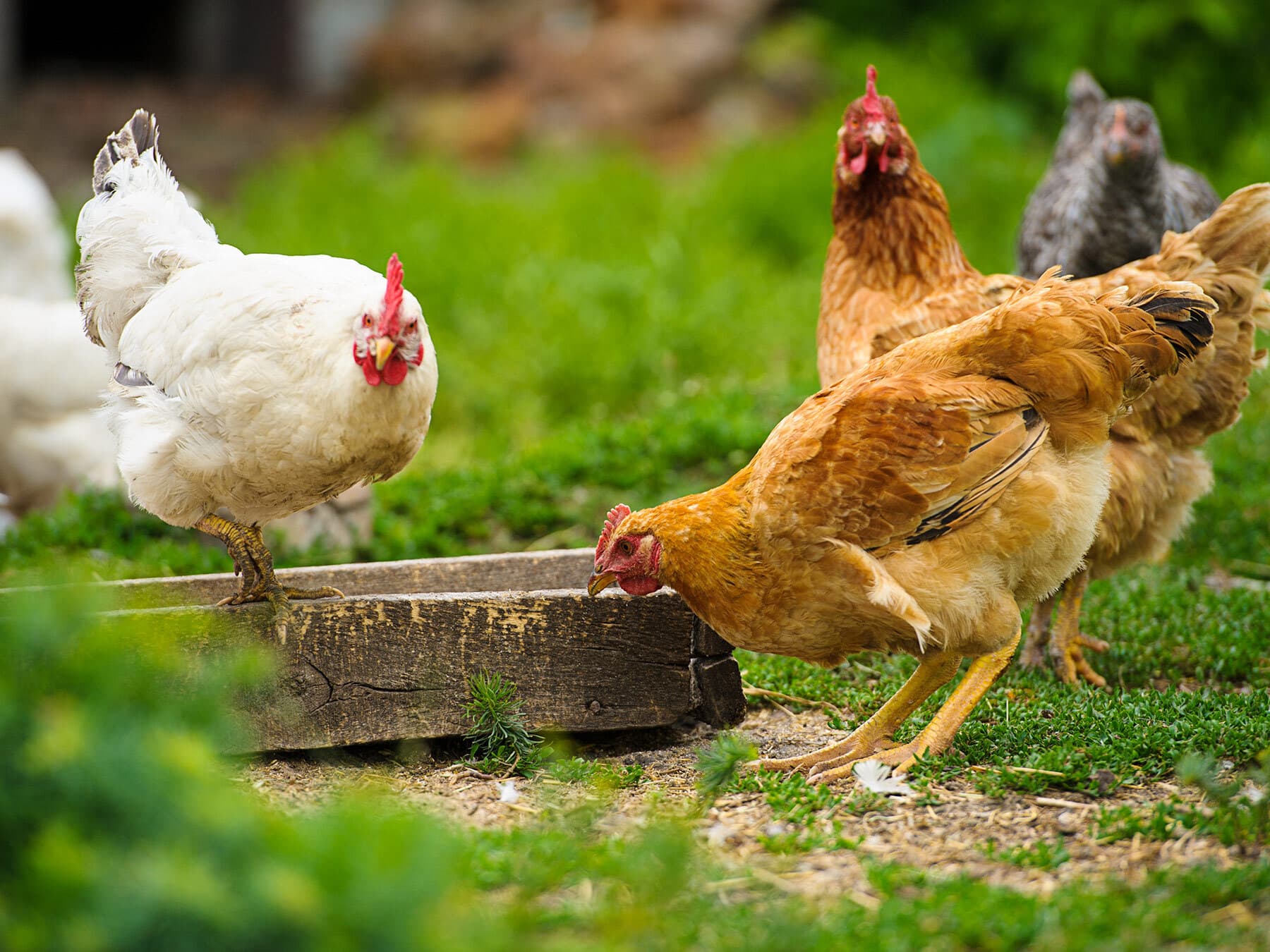
Winter Feeding and Social Order
Even in winter, when bugs are scarce, they keep busy. They'll peck at winter grass, devour kitchen scraps (staying under that crucial 10% treat limit), and scratch through the snow looking for hidden treasures.
Toss out some vegetable trimmings - beets, carrots, or pumpkin pieces are perfect - and you'll see their hierarchy in action.
The best bits always go to the top-ranking hens first, while others wait their turn, making do with whatever's left.
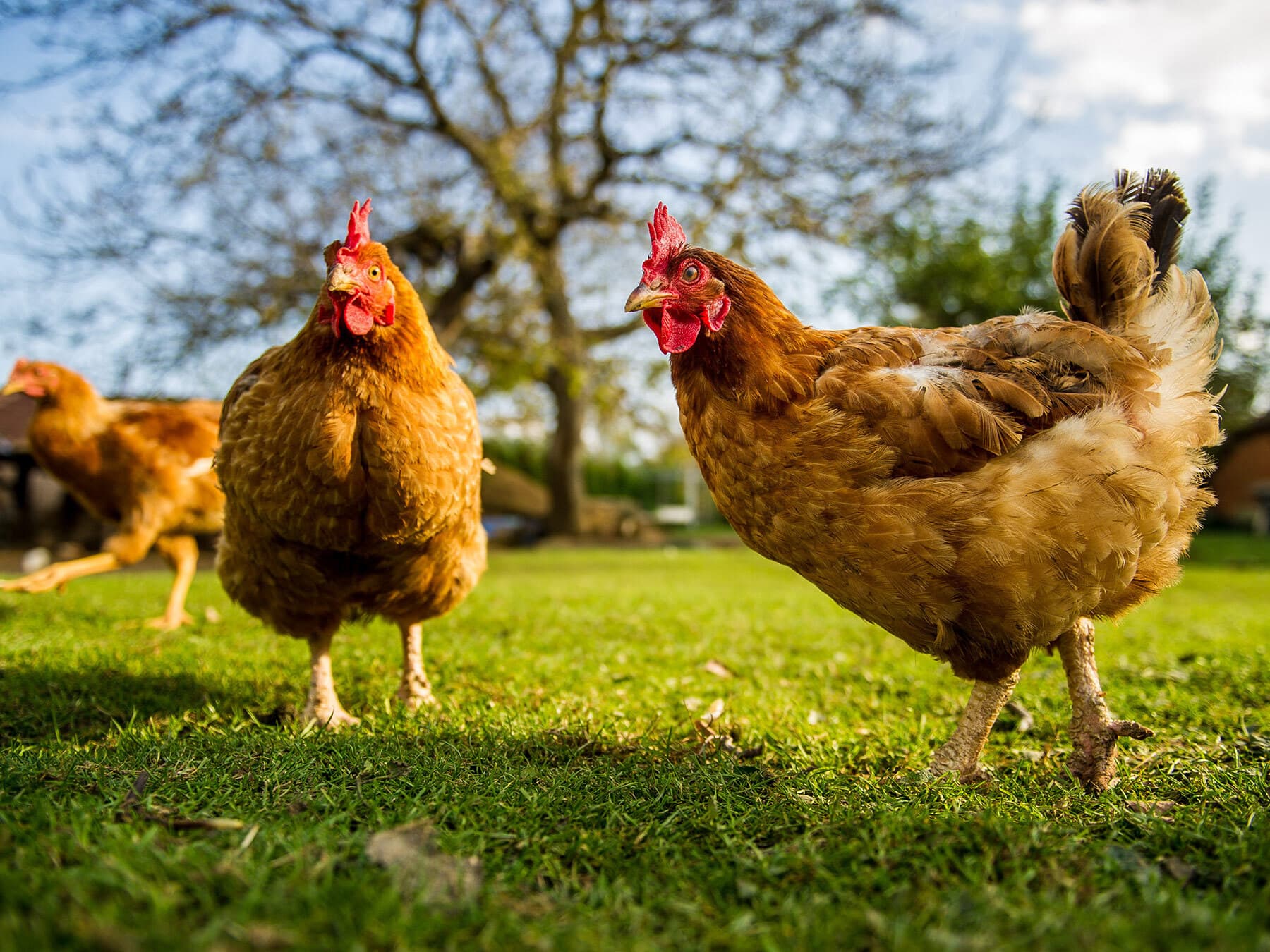
Water and Hydration
Throughout it all, you'll notice them taking regular breaks to drink - chickens need a steady supply of fresh water, drinking up to half a litre on hot days.
It's fascinating to watch them tip their heads back after each sip, letting gravity do the work of getting that water down.
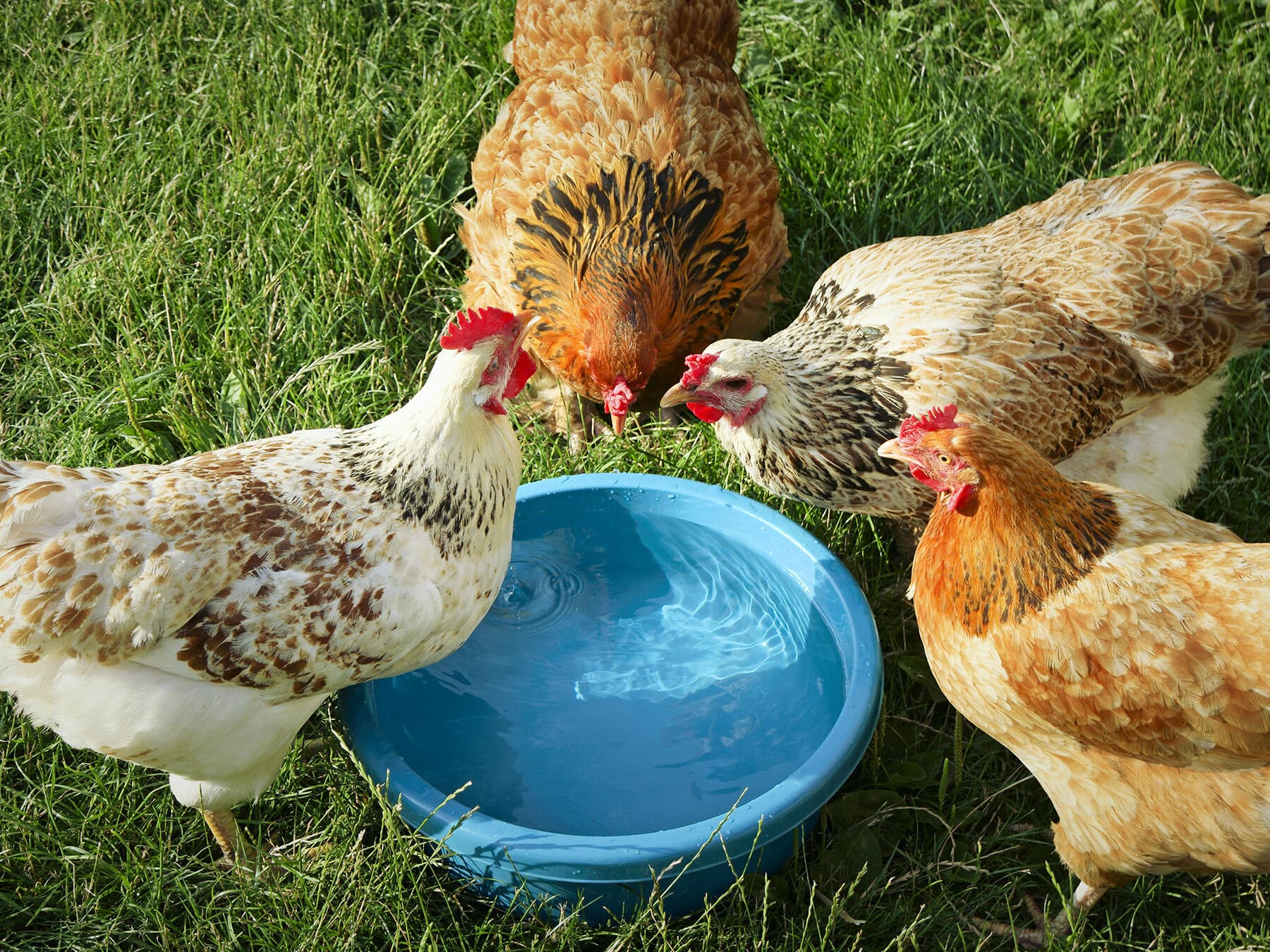
Identify Any Bird Instantly
- Upload a photo from your phone or camera
- Get an instant AI identification
- Ask follow-up questions about the bird
Monthly Birds in Your Area
- Personalised for your location
- Seasonal tips and garden advice
- Updated every month with new species
